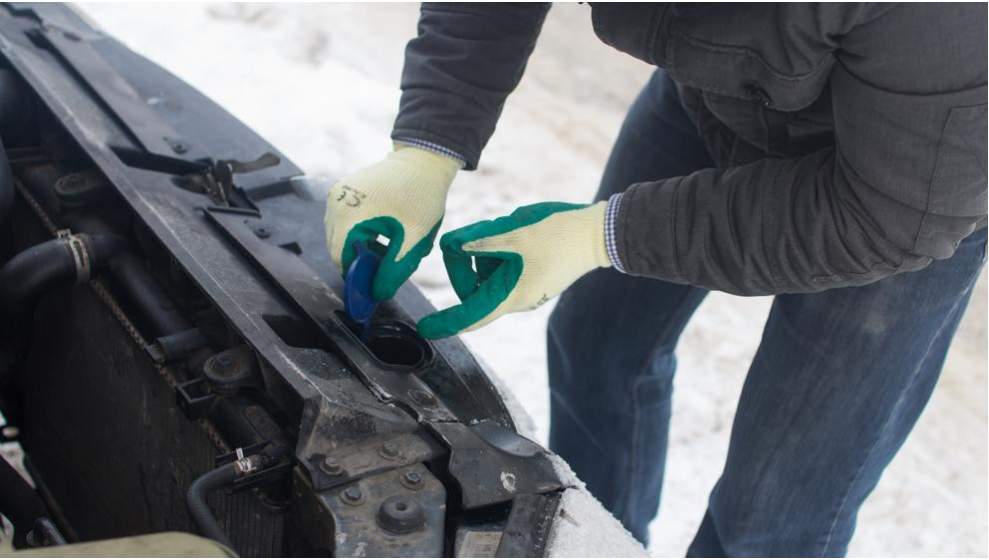
Make sure you do the following in order to be ready:
- Ensure that all fluids are at their proper levels. In cold winter temperatures, it is always a good idea to check your antifreeze level and ensure it is properly rated for the temperatures in your area of the country. In addition, if the antifreeze is over five years old you may want to have it drained and new fluid added (check your owner’s manual for recommendations). It’s true that windshield washer fluid is used year-round, however, much more of it is utilized in the winter due to the salt and chemicals used on roads. Ensure you use de-icing wiper fluid, top off the fluid levels and be sure to include that rear window reservoir as well if you have a rear window wiper system.
- Clean and inspect exterior and interior lights. The sun sets much earlier in the winter months and having your vehicle lights working at their best is crucial for everyone’s safety. Replace any non-functioning interior or exterior bulbs and clean your glass or plastic lamp shields. If there are any cracks or leaks, it may be a good idea to see a mechanic for repairs.
- Have your brakes and steering systems inspected. These two systems need to be operating at optimal levels to prevent a collision or rollover. Brake pads and parts should be inspected by a mechanic for wear or defects along with steering system mechanisms. In addition, brake and power steering fluids should be checked and any leaks fixed.
- Check your tire pressure weekly. Ensure that your tire pressure is at the recommended pounds per square inch (psi). PSI ratings embossed on the tire are not necessarily the proper pressure for your vehicle. Refer to your owner’s manual or check the driver’s side door placard for tire pressure information. Tire pressure can change one pound per square inch for every nine degrees Fahrenheit change in temperature. Sudden drops in temperature can result in underinflated tires. Be sure to check your spare tire for any damage or deflation.
- Stock up for winter. Although a first-aid kit and a flashlight are essentials that you should have in your vehicle all year, there are other highly recommended items you should have on hand for winter such as an ice scraper/brush, shovel, and a bag of kitty litter or sand.
- Prepare for the unexpected. For severe weather and/or long trips, consider keeping these additional items in your car: a 24 to 48-hour supply of drinks and high-energy snacks, extra batteries, charging cables, jumper cables, a blanket and warm clothing. If you are traveling with children, it is a good idea to bring along books, cards or games to keep them entertained in the event you become stuck.
Be prepared for winter by taking the above steps and maintaining slower driving speeds and maintaining a safe stopping distance.
